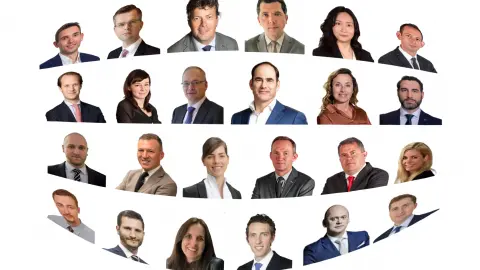ING’s June Monthly: We’re only human
If anything can go wrong, it will… that's the definition of Murphy's Law. We always use our wealth of experience to come up with what we think is going to happen in the global economy but to err is human. So, what might we be getting wrong?
Executive summary
Always expect the unexpected; it's a guiding principle
My favourite home soccer club, Hertha Berlin, got relegated to the second division two weeks ago. They played a season to forget: too many goals conceded in overtime, questionable referee decisions and many missed opportunities to score. Everything that could possibly have gone wrong did just that. We call it Murphy’s Law. And in the global economy, a lot has gone “wrong” over the last few years.
'Always expect the unexpected' has been a good guide to forecasting. And that's what we're trying to do in this edition of the ING Monthly.
Thinking in terms of scenarios rather than conviction calls has also been a good guide for our macro team. At the start of the summer, we tried to repackage our forecast updates with a sprinkle of creativity. Yes, asking an economist to become creative can sometimes be a bit of a stretch, but at least we tried. Instead of focusing on our base case scenarios, we brought Murphy in to take a look at what could go wrong in our well-considered forecasts.
We're getting creative
To be clear, we still expect a recession in the US over the coming quarters on the back of banking weakness, real estate and monetary policy tightening. In fact, we're sticking with our call of significant Fed rate cuts before the end of the year.
In the eurozone, the latest growth disappointments and weaker sentiment indicators have strengthened our longstanding call for subdued growth over the next two years. Rate cuts are not yet on the European Central Bank's mind, and we still see at least two additional rate hikes going into the summer. As both economic activity and inflation are coming down, any additional ECB rate rise comes at the risk of becoming a policy mistake, at least with hindsight.
Returning to Murphy, the question is, what could go wrong in our base case scenarios? What would need to happen for the Fed not to start cutting rates this year? Or in which economic world would the ECB continue hiking rates beyond the summer? And is there seriously a chance of a Goldilocks scenario, despite the current widespread pessimism? Join us and follow our economists’ lines of thought as we get our creative juices flowing as much as we can as we really start challenging ourselves.
My home club, by the way, had been close to relegation for the last four years. Wrong financial decisions, wrong transfers and wrong strategic decisions. Getting relegated after such a long stretch of being wrong has no longer to do with Murphy but is rather a sign of incompetence. The latter clearly doesn’t apply to our official forecasts.
Carsten Brzeski
Download
Download report
1 June 2023
ING Monthly: We’re only human This bundle contains 9 ArticlesThis publication has been prepared by ING solely for information purposes irrespective of a particular user's means, financial situation or investment objectives. The information does not constitute investment recommendation, and nor is it investment, legal or tax advice or an offer or solicitation to purchase or sell any financial instrument. Read more
